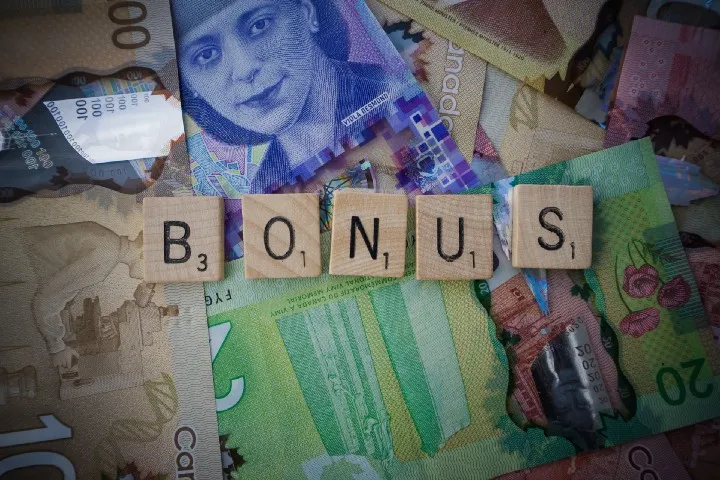
Photo by Frugal Flyer on Unsplash
When it comes to opening a bank account, you might as well get a cash reward for doing so, because, well, they’re there, so… why not?
The site I rely on most for an updated list of available bank account bonuses is Doctor of Credit. (They also compile the best credit card sign up bonuses, but that’ll be an eventual post of its own).
Their list of bank account bonuses includes links directly to the offers as well as in-depth posts detailing their terms, eligibility requirements, and other important information. The site also allows for comments from users, so you can see whether others have successfully received the bonus(es) or encountered issues, and if so, how you might be able to avoid them and/or learn from their cautionary tale.
The other site where I search for active opening bonuses for online banks is Swagbucks.*
* If you don’t have a Swagbucks account, you can read my full review here for more information and/or sign up with my referral code to receive a 300 SB (swagbucks, i.e. $3.00) bonus if you earn 300 SB within the first 30 days of account creation.
While swagbucks aren’t technically cash until redeemed as such, the bonuses available through the Swagbucks site are often 10,000 SB or more, which is equivalent to at least $100. They can sometimes also be combined with whatever opening bonus the bank itself is offering potential customers — Doctor of Credit will usually mention on their site when the opportunity to do this presents itself.
Note that if you’re completing an account opening bonus through Swagbucks, make sure to read the fine print and be careful to click the correct link from Swagbucks to activate it. You should, of course, be meticulous in following the requirements for any account opening bonus in general, but Swagbucks is structured in a way that makes it easy to accidentally miss its tiny font of terms and conditions.
Remember, when going for a bank account bonus, ensure that you understand its account requirements, balance minimums, customer requirements (such as if you have to be a brand new client or can’t have been a client for a specific length of time), if it is a hard or soft credit pull, and how it will affect your record in ChexSystems (or whatever system they use to check your banking record).
If you think you will not be approved for an account or its requirements are not comfortably maintainable, it is not worth the stress or risk of hurting your credit score or banking record.
Also, because everything any corporation does is for their own benefit, (call me anti-capitalist and I’ll tell you, “you’re correct”), account bonuses are intended to generate new customers for a bank and boost the amount of money coming in from them via deposits, loans, fees, or any other potential banking services they may use. With this, the majority of bank account bonuses for checking accounts require direct deposit (guaranteeing themselves an influx of cash).
Once you’ve officially set down the path to an account opening bonus, add calendar reminders for its requirements and the deadline for when you should receive the bonus, provided all conditions are met. You will also receive a 1099-INT from the bank the following tax season as you’ll have to pay taxes on the income/bonus.
After you receive the bonus, I would highly suggest still keeping the account open for a few months after (I usually keep it for around one year in total). If you close the account too early, the bonus will be retracted and/or you may have to pay an early termination fee. Check with the applicable bank on their required time period of keeping the account open and required minimum account balance to prevent jeopardizing your bonus.
Overall, bank account bonuses take time and a decent amount of reading fine print, but if you don’t find yourself overly annoyed by this, they can be a good source of the beloved “passive income” and a way to get paid for the things you already do.






